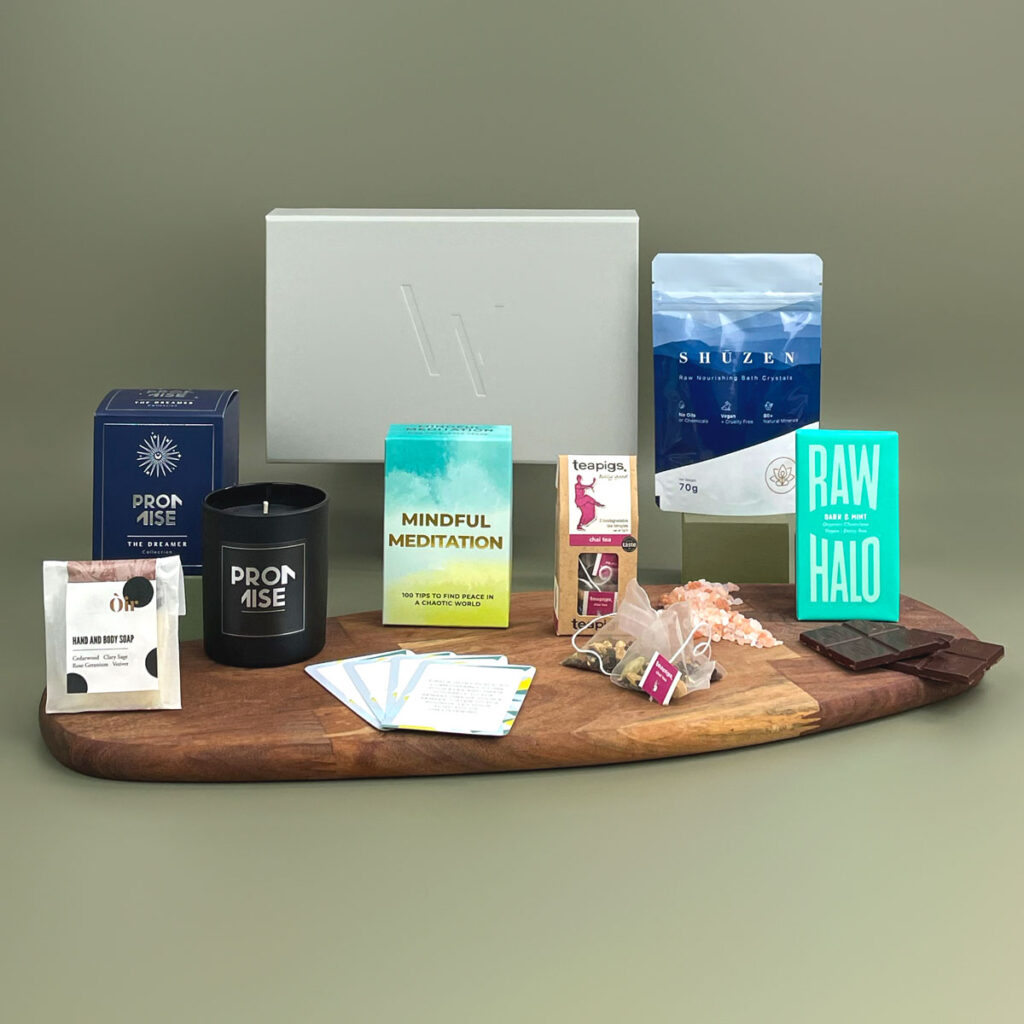Work might not always be sunshine and spreadsheets, but there’s no denying that stress is something we all experience from time to time – especially at work. From tight deadlines and never-ending meetings to overflowing inboxes and hybrid working headaches, stress has a sneaky way of showing up uninvited.
That’s why International Stress Awareness Week (1st–7th November 2025) is such a valuable moment in the calendar. It gives employers and teams a chance to pause, reflect, and take simple, meaningful steps to create healthier, happier workplaces – where people feel supported, seen, and able to breathe.
In this guide, we’re diving into why stress at work deserves your attention, what the law says about managing it, and most importantly – fun, effective ways you can support your team’s wellbeing not just this week, but all year round.
Let’s make stress management a little less serious (and a lot more human).

What is Stress Awareness Week?
International Stress Awareness Week takes place every year during the first week of November – and in 2025, it runs from 1st to 7th November. It was launched by the International Stress Management Association (ISMA) and has become a global moment to raise awareness about the impact of stress on our mental and physical health.
The aim? To get people talking about stress in an open, stigma-free way, while offering real-world strategies for managing it – at work, at home, and everywhere in between.
Stress Awareness Week is your chance to turn the spotlight on employee mental health and wellbeing, reflect on what’s working (and what’s not), and explore how small changes can make a big difference.
It’s also a great time for HR and people teams to bring some positive energy into your workplace – whether that’s through wellbeing activities, open conversations, or even a surprise gift that shows your team you care. (Hint hint: that’s where we come in.)

Why Workplace Stress Management Matters
We all expect a little pressure at work – a looming deadline, a big pitch, the Monday morning coffee queue. But when that pressure turns into persistent stress, it can start to affect more than just someone’s mood.
In fact, according to the HSE, work-related stress, anxiety, and depression accounted for over half of all work-related ill health in the UK last year. And while that sounds serious (because it is), the good news is: employers have a huge opportunity to do something about it.
Managing stress at work isn’t just about avoiding burnout (although that’s a big one). It’s about creating a culture where people feel safe, supported, and set up for success, not stretched to breaking point. And when you get that right, the benefits are huge:
✅ Higher engagement and morale
✅ Better retention and lower absenteeism
✅ Stronger team relationships
✅ Healthier, happier humans (which is always the goal)
And let’s not forget – prioritising mental health is also part of an employer’s duty of care. But even if it wasn’t, wouldn’t you want to be the kind of workplace where people want to show up every day?
It doesn’t take a full-scale wellness overhaul. Often, it starts with awareness, empathy, and simple actions that say: “We see you. We’ve got you.”

Understanding Work-Related Stress: Causes & Symptoms
Let’s get one thing straight: stress isn’t weakness – it’s human.
Our brains are wired to react to pressure, challenges, and change. A little stress can even be helpful (hello, pre-presentation adrenaline). But when it builds up without enough time, support, or breathing space, it can lead to overload and that’s where things start to unravel.
At work, stress can sneak in from all angles. Some of the most common workplace causes include:
🔹 Heavy workloads and unrealistic deadlines
🔹 Lack of control over tasks or decisions
🔹 Poor communication or unclear roles
🔹 Tension between colleagues or teams
🔹 Constant change without support
🔹 Job insecurity or lack of recognition
And because stress doesn’t always wear a name badge, it helps to know what to look out for. Some symptoms might be obvious – others, not so much. Here are a few signs your team (or you!) could be feeling the strain:
- Drop in performance or productivity
- Mood swings, irritability, or withdrawal
- Increased absenteeism or presenteeism
- Physical symptoms like headaches, fatigue, or trouble sleeping
- Changes in eating habits or increased reliance on caffeine/alcohol
The key? Spotting the signs early. Stress doesn’t usually shout – it whispers. So, creating a culture where people feel comfortable speaking up is one of the most powerful things you can do.
And don’t forget: what’s stressful for one person might not be for another. That’s why flexible, human-centred approaches to wellbeing work best.
The Legal Responsibilities for Employers
This part keeps things light but informative, and clearly explains what UK employers need to know – without sounding heavy-handed or overly formal.

The Legal Responsibilities for Employers
Let’s talk law, but don’t worry, we’ll keep the legal jargon to a minimum.
As much as stress is a wellbeing issue, it’s also something employers are legally required to take seriously. In the UK, every employer has a duty of care to protect their team from work-related stress and support good mental health in the workplace.
According to the Health and Safety Executive (HSE), this includes:
🔹 Carrying out stress risk assessments
🔹 Identifying the root causes of work-related stress
🔹 Taking practical steps to remove or reduce those risks
🔹 Monitoring and reviewing how things are going
If you have five or more employees, you need to put that risk assessment in writing. If you have fewer, you’re still expected to take action – just without the paperwork.
But before you panic and start drafting a 37-page policy, the HSE has made things easier with its Working Minds campaign, which encourages employers to follow the “Five Rs”:
- Reach out – Have conversations with your team
- Recognise – Understand the signs and causes of stress
- Respond – Act on what you find
- Reflect – Review what’s working (and what’s not)
- Make it Routine – Build it into everyday culture
Think of it less like a legal checklist and more like common sense for building a healthy workplace – where people feel supported, valued, and equipped to thrive.
Because yes, compliance matters. But doing the right thing for your people? That’s what makes great companies truly stand out.

How to Recognise Signs of Stress in Your Team
Stress doesn’t always walk into a meeting and announce itself. In fact, some of the most overwhelmed people in your workplace might still be smiling, hitting deadlines, and quietly burning out behind the scenes.
That’s why learning to spot the signs of stress in your team is such an important part of being a supportive leader – especially during Stress Awareness Week.
Here are some common red flags to watch for:
🔸 Behaviour changes – Someone who’s usually chatty might go quiet. Someone confident might seem on edge.
🔸 Drop in performance – Missed deadlines, forgotten details, or lower-quality work can be subtle signs of struggle.
🔸 Absenteeism or presenteeism – A stressed employee might take more time off… or they might show up every day while feeling totally drained.
🔸 Mood swings or tension – Increased irritability, frustration or even conflict in the team.
🔸 Physical symptoms – Headaches, fatigue, frequent illness, or changes in eating/sleeping patterns.
🔸 Withdrawal from social interaction – Pulling back from team chats, socials or even casual conversation.
Of course, not every off day means someone is stressed. But patterns over time are worth noticing and acting on.
The best way to stay ahead of stress?
👉 Regular, low-pressure check-ins. Not just the “how’s the project going?” type but the “how are you doing?” kind.
Create space for honest conversations without judgement, and you’ll be amazed what people feel comfortable sharing. Especially if they know it’s coming from a place of care, not criticism.
And remember: you don’t need to have all the answers. Just being a calm, open and approachable presence can make a huge difference.

7 Proven Ways to Support Your Staff During Stress Awareness Week
Now that we’ve talked about what stress looks like and why it matters, let’s get into the fun, feel-good part: what you can actually do to support your team during Stress Awareness Week (and beyond).
Good news – you don’t need a big budget, a wellness committee, or a team of in-house yogis to make a meaningful impact. Small, thoughtful actions go a long way. Here are seven practical, people-first ways to make a difference:
1. Manage Workloads & Deadlines (Without the Panic Button)
Overloaded teams don’t need motivation quotes, they need manageable task lists.
Take time to review priorities. Are you asking too much? Are deadlines realistic? Can anything wait until next week? (It usually can.)
💡 Pro tip: Encourage teams to block out focus time in their calendars – uninterrupted time helps reduce stress dramatically.
2. Encourage Work-Life Balance (and Mean It)
Telling people to “log off on time” while emailing at 10pm sends mixed signals.
Model healthy boundaries and encourage breaks, holidays, and screen-free evenings.
💡 Consider offering flexible hours or remote days – they’re a lifeline for many employees managing personal commitments or mental health.
3. Offer Employee Assistance Programmes (EAPs)
Sometimes people need more than a chat with their manager – they need expert, confidential support.
If you don’t have an EAP in place, Stress Awareness Week is a great time to explore one.
💡 Make sure your team knows how to access it. If no one’s using it, they might not even know it exists!
4. Create Quiet Breakout or Recharge Spaces
Stressful environments don’t give people room to breathe, literally.
Whether it’s a quiet room in the office, a “no meetings” hour, or a virtual wellness break, give people the space to pause and reset.
💡 No budget? A few plants, soft lighting, and a “no laptops allowed” rule can work wonders.
5. Organise a Light, Feel-Good Activity
Not everyone wants to do yoga in front of their colleagues, and that’s okay.
Try something easy and inclusive:
– Craft and coffee break
– Surprise wellbeing gifts
– Share your favourite stress-busting podcast or playlist
– Bonus points for laughter – it’s a brilliant stress reliever.
6. Train Managers to Recognise and Respond
Most people don’t leave jobs, they leave environments that feel unsupported.
Equip your managers with the confidence to spot stress, start conversations, and signpost support.
💡 Don’t forget: leaders feel stress too. Make sure they’re looking after themselves as well.
7. Recognise and Celebrate Small Wins
When people feel valued, they feel less stressed – it’s that simple.
Take time to notice the good stuff: a project well done, a kind gesture, a team member going above and beyond.
💡 Even better? Pair it with a thoughtful gift or hand-written note to say thanks – tangible appreciation is always memorable.
No single initiative will solve workplace stress overnight. But each of these actions is a step in the right direction and together, they send a powerful message: “You matter here.”
And sometimes, that’s exactly what someone needs to hear.

How We Can Help
We believe the most memorable gifts aren’t just beautifully packaged – they’re thoughtfully chosen to support real people in real moments. Especially during Stress Awareness Week, when a simple gesture in the form of a gift can make a huge impact.
Looking to help your team pause, breathe and reset? Here are three perfect options:
Wonder – A Gift of Calm and Care
Packed with premium wellness products and tasty treats, Wonder is a self-care hamper designed to help your team unwind, relax, and recharge.
From aromatherapy shower steamers to gourmet chocolates, a positivity desk pad, and soothing drinking chocolate, this gift turns even the busiest workday into a mini wellness retreat. Oh and every Wonder box includes a £1 donation to Mind, supporting mental health for those who need it most.

Sleep – Rest, Recharge and Feel Restored
If better sleep is the goal (and let’s face it, who doesn’t need more of that?), Sleep is the perfect wellness gift. This calming collection features a satin sleep mask, relaxing massage balm, and indulgent chocolate pralines – all designed to encourage better rest and a healthier work-life balance.
It also includes a £1 donation to Mind, because every small act of care contributes to a greater cause.

Breathe – Unwind, Reset, and Reconnect
After a long day on their feet (or behind a screen), Breathe helps your team exhale. This beautifully packaged hamper includes Himalayan bath salts, a limited-edition black jar candle, chamomile tea, mindful meditation cards, and soothing massage balm – all designed to encourage rest and reflection.
A calming blend of wellness and self-care, plus a £1 donation to Mind with every box.

All our gifts come with:
- A personalised printed message from you or your company
- Free UK delivery – straight to the office or to your team’s home
- A sustainable, premium gift box they’ll love unwrapping
And if you’re after something more tailored, we also offer fully customisable gift options to reflect your brand, values, and the unique personalities of your team.
Whether you’re surprising one colleague, a whole department, or your entire remote workforce, we make it easy to create feel-good, do-good gifting moments – the kind that say more than “we appreciate you.” They show it.
Lasting Impact Beyond Awareness Week
Stress Awareness Week is a fantastic starting point but the truth is, managing workplace stress isn’t a once-a-year job. It’s an ongoing commitment to creating a culture where people feel supported every day, not just during awareness campaigns.
The great news? You don’t need to reinvent your entire company culture to make that happen. In fact, small, consistent actions often have the biggest long-term impact.

Here’s how to keep the momentum going once the stress awareness posters come down:
Make wellbeing part of the routine
Schedule regular mental health check-ins, not just in reaction to stress, but proactively. Ask for feedback on how your team’s doing, what they need, and what’s working (or not).
Keep conversations open
The more people talk about stress, the less scary and stigmatised it becomes. Encourage ongoing dialogue in team meetings, manager 1:1s, or anonymous surveys. Make “How are you, really?” a normal question to ask and answer.
Align wellbeing with your business goals
Wellbeing isn’t separate from productivity, it powers it. Teams who feel supported work better, stay longer, and bring more energy to their roles. Treat your wellbeing initiatives as part of your retention, engagement, and performance strategy – not just your HR to-do list.
Continue creating thoughtful touchpoints
Gifting doesn’t need to be limited to Stress Awareness Week. From onboarding welcome packs to celebrating work anniversaries, promotions, or “just because” moments – tangible gestures go a long way in making people feel valued all year round.
We call these “tangible touchpoints” – the physical reminders that someone is thinking of you, even if you’re working from a different postcode.
Because when people feel seen, supported, and appreciated on a regular basis, stress doesn’t stand a chance.
Planning Christmas Gifting? Make It Personal.
Download our Christmas Gifting Brochure and discover how to make this year’s festive season feel less like admin and more like impact.
Explore Our Festive Collection First
From affordable team treats to premium hampers and bespoke branded gifts, get early access before our most popular items go (and trust us, they go fast).
Add That Personal, Branded Touch
Customise your gifts with your logo, message, and optional charity tie-ins – then schedule delivery in advance for a stress-free December.
Gifts That Reflect Your Values
Sustainable packaging, support for UK makers, and charitable giving included with every gift – so you can tick CSR, wellbeing, and “wow factor” off your list in one go.


